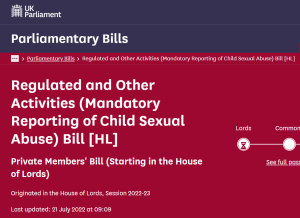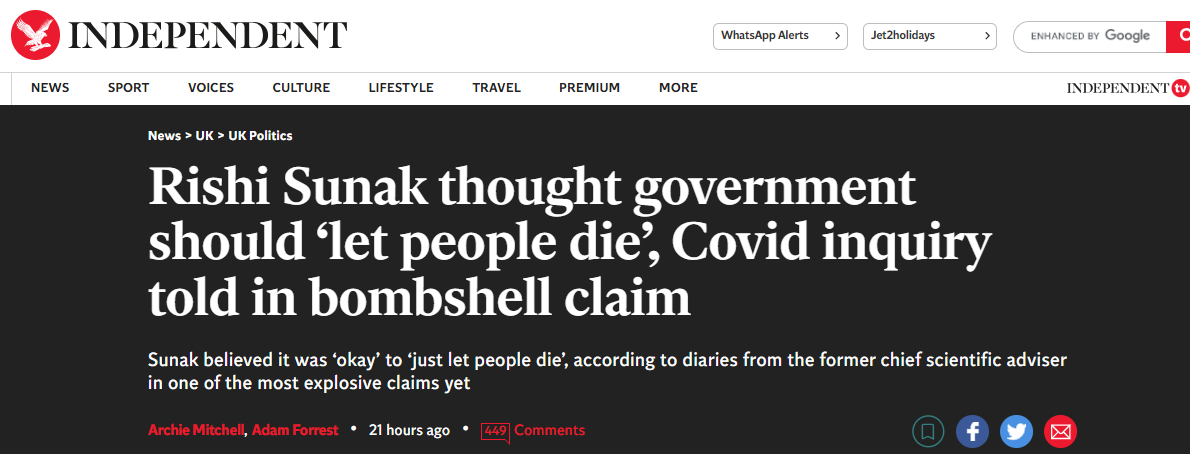Churches will be unaffected by the new “Duty to Report” Child Sex Abuse
The Bishop of Manchester this week has been arguing in Parliament in favour of an exemption from the “Duty to report” child sex abuse for disclosures of abuse heard during confession. He seems to think that keeping secrets is a higher moral duty than protecting children from abuse.
Other mandatory reporting duties have been introduced in the past. For instance a mandatory duty to report suspected money laundering is in the Proceeds of Crime Act 2002. A duty to report certain crimes related to terrorist activity is in the Terrorism Act 2000. In neither case did the churches make any argument in favour of an exemption for confession, even though in these two cases failing to make a required report is actually a criminal offence and the non-reporter could go to prison for it.
One has to wonder why the churches are so interested in carving out an exemption for themselves specifically on child sex abuse, when they couldn’t be bothered to ask on these other topics which have been in law for more than 20 years without causing the churches any noticeable spiritual inconvenience.
But in fact, the Bishop of Manchester’s concerns are misguided for an entirely different reason. Any organisation which decides for religious or any other reasons to protect those who don’t report child sex abuse can do so with complete impunity.
Under the new bill, it’s not an offence not to report child sex abuse. So unlike money laundering or terrorism, nobody is going to jail for not reporting abuse.
The government has said that non-reporters may be subject to the sanction of being referred to the DBS. But DBS referrals don’t happen by magic, they have to be made by specific people. And under the new “duty to report” in this Bill, the only person who can refer a non-reporter is their employer.
Under the bill, the employer must refer someone to the DBS for non-reporting if they first either sack them or move them away from child-facing duties because of the failure to report. It will be an offence not to make a referral in this specific circumstance. But if the employer chooses to leave the non-reporter in their job, they legally can’t make a DBS referral, and there is absolutely nothing anybody else can do about it.
So the churches can simply have an unwritten policy that they aren’t going to sack anyone for not reporting abuse heard in confession (or for that matter nor reporting abuse heard at any other time), and therefore they legally can’t make a DBS referral about, and nobody can force them to change their policy.
Of course, this doesn’t apply just to churches. Any organisation can have this policy for any reason, and nobody can prevent them. This bill is not designed to help children.


